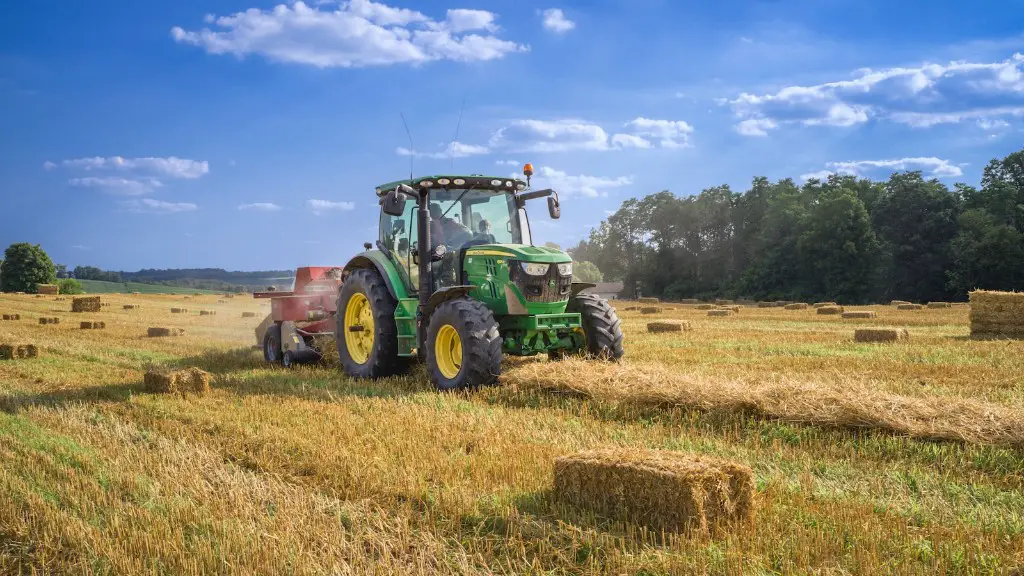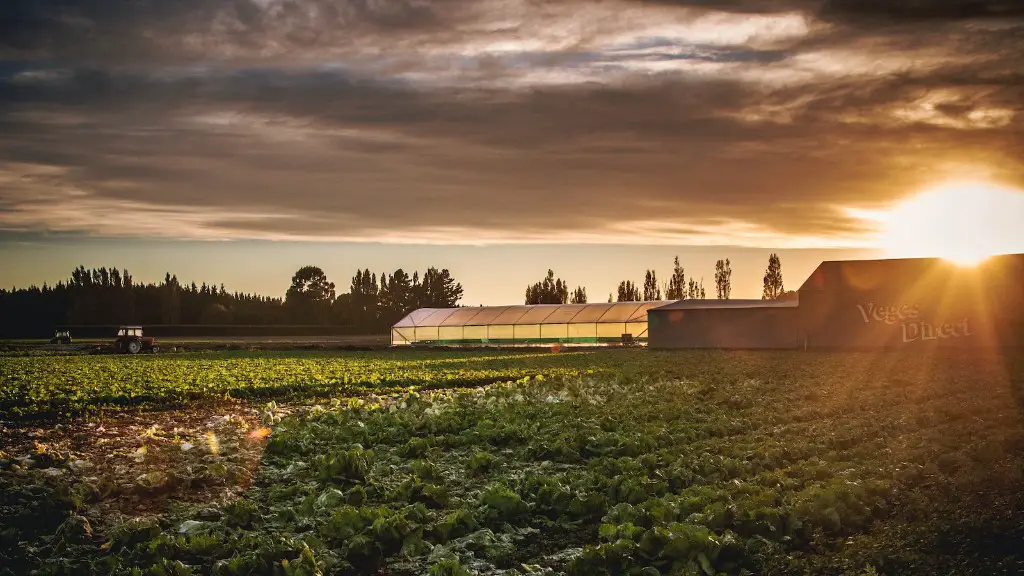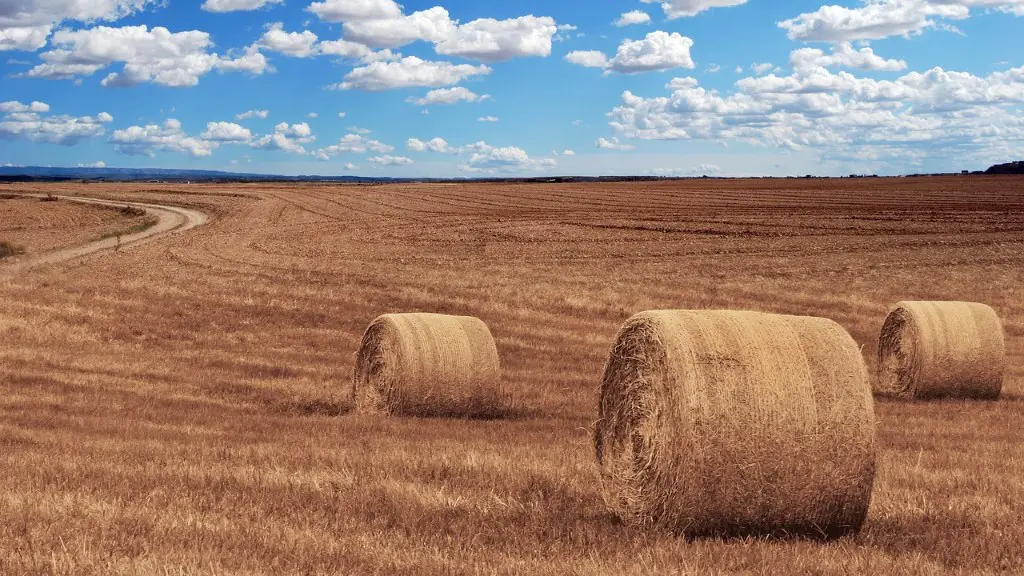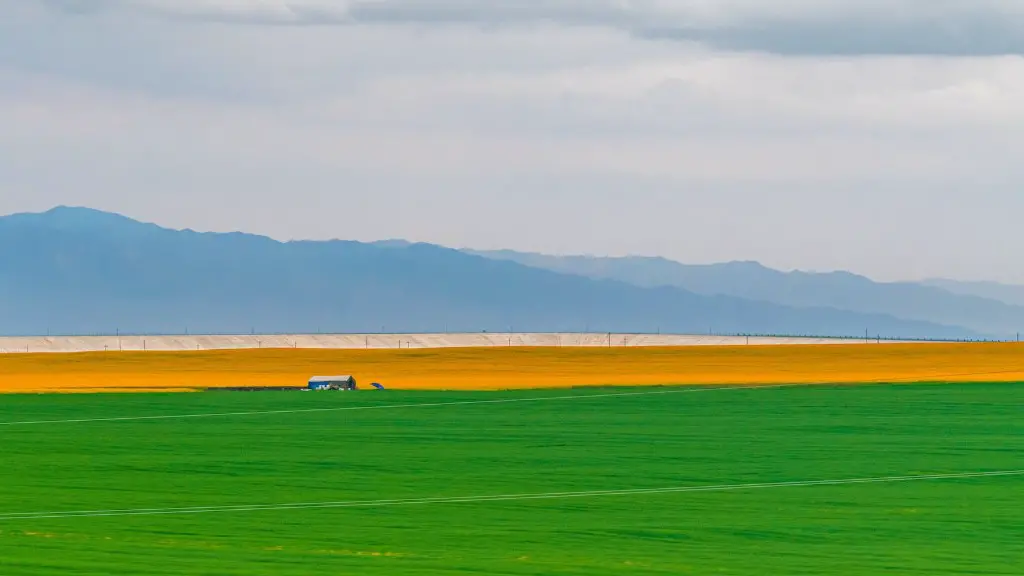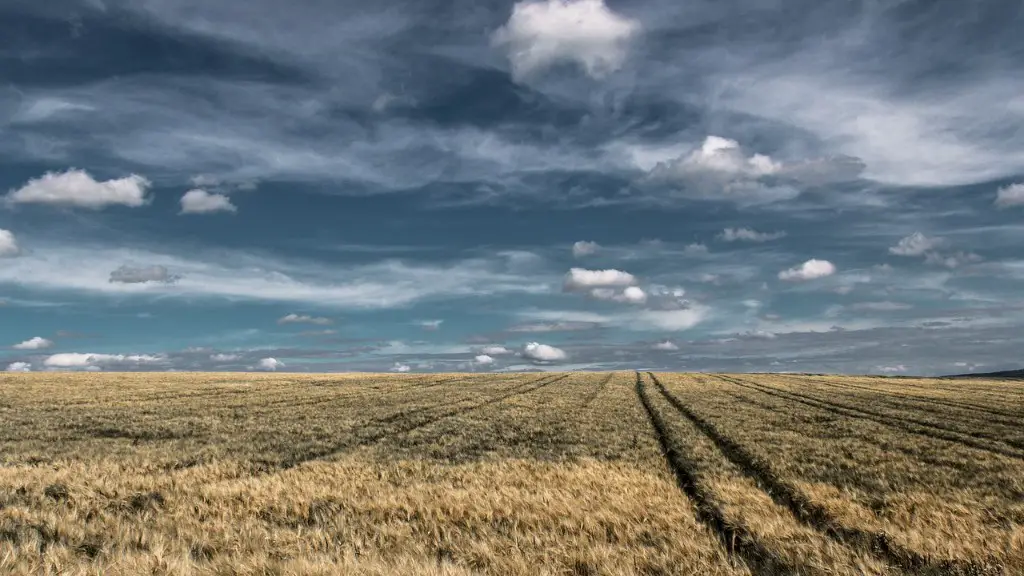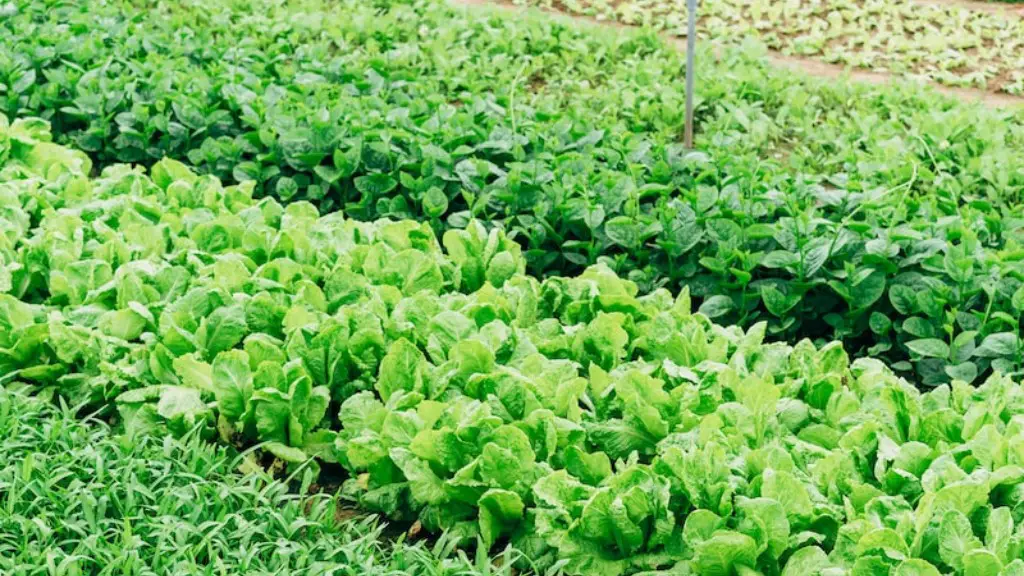Agriculture is the science and art of cultivating plants and livestock for human use. Agriculture was first developed over 10,000 years ago, and it has since played a major role in human society. Agriculture allowed for the domestication of plants and animals, which led to the development of civilizations. Agriculture has also played a key role in shaping the environment and human health.
The word ‘agriculture’ is derived from the Latin word ‘agri’ meaning field or soil and ‘culture’ meaning tilling or cultivation. Agriculture can be defined as the art and science of cultivating the land for the production of crops. It is one of the oldest economic activities of mankind and has been the main source of livelihood for the majority of the world’s population throughout the history. Agriculture is not only about producing food for the human beings but also producing raw materials for industries.
What does agriculture mean in history?
The art and science of cultivating land for growing crops or raising livestock is known as agriculture. Agriculture has been a part of human civilization for thousands of years and continues to be an important part of the world economy today. There are many different types of agriculture, from small family farms to large commercial operations, and the methods used to grow crops and raise livestock vary widely.
Agriculture is thought to have begun during the Neolithic Era, before roughly 9000 BCE. This is when polished stone tools were developed and the last ice age ended. Historians have several theories about why many societies switched from hunting and foraging to settled agriculture. One theory is that the climate was changing and becoming more suitable for agriculture. Another theory is that the population was growing and the available resources could not support everyone. Whatever the reason, agriculture has had a huge impact on human society and the development of civilization.
What did agriculture do
Agriculture is one of the most important inventions of humanity. It allowed people to grow all the food they needed in one place, with a much smaller group of people. This led to massive population growth, creating cities and trade. Agriculture is the foundation of civilization.
Sometime around 12,000 years ago, our hunter-gatherer ancestors began trying their hand at farming. First, they grew wild varieties of crops like peas, lentils and barley and herded wild animals like goats and wild oxen. Eventually, they began domesticating these plants and animals, and over time, they developed into the domesticated varieties we know today. This transition from hunting and gathering to farming was a major turning point in human history, and it allowed for the development of civilizations as we know them.
Why was agriculture so important?
Agriculture is important for many reasons. It helps sustain life by providing the food we need to survive. Agriculture also contributes $7 trillion to the US economy. Despite agriculture’s importance, the Economic Policy Institute reports that farmworkers are among the lowest-paid workers in the US. This is an important issue that needs to be addressed.
Agriculture is one of the most important inventions of humanity. It allowed for the domestication of plants and animals, which led to the development of civilizations. Agriculture began independently in different parts of the world, but the most famous example is the Neolithic Revolution, which occurred between 7,000 and 10,000 years ago in the Middle East. This was a period of great change, when humans began to use new technologies like pottery and metal tools.
Who started agriculture?
The Egyptians were among the first peoples to develop agriculture on a large scale. This was made possible by the development of basin irrigation, which allowed them to farm in the arid desert climate. The Egyptians began to practice agriculture in the pre-dynastic period, between around 10,000 BC and 4000 BC. This allowed them to develop a sedentary lifestyle and create the civilizations for which they are known.
The first recorded agriculture appears to have developed at the end of the last Pleistocene glacial period, around 11,700 years ago. Though there is evidence of earlier agriculture (e.g. in the form of cultivated plants found in archaeological sites), this is the earliest date at which we have reliable written records. Agriculture allowed for the domestication of plants and animals, which in turn led to the development of civilizations. Agriculture allowed humans to settle in one place and create permanent settlements, which led to the development of cities and states. Today, agriculture is a vital part of the global economy, and plays a significant role in the way we live our lives.
How was agriculture in the 1800s
Most farmers would grow a variety of crops, depending on where they lived. Tobacco, wheat, barley, oats, rice, corn, and vegetables were some of the most common crops grown. Farmers also had many different kinds of livestock, such as chicken, cows, pigs, ducks, geese, and more.
While agriculture’s share of the overall US economy has diminished in recent years, it is still a significant part of the country’s economic output. Agriculture, food, and related industries contributed roughly $1264 trillion to US gross domestic product (GDP) in 2021, a 54-percent share. The output of America’s farms contributed $1647 billion of this sum—about 07 percent of US GDP. While this is a far smaller share than in previous years, it is still a significant part of the US economy.
Why did agriculture begin?
Prehistoric “pantries” have been found in Jordan that date back 11,000-12,000 years ago. These structures were built to store extra grain, which suggests that our ancestors were already practicing some form of agriculture long before it was thought to have begun. This new discovery challenges the previous theory that farming was adopted only because it was more efficient than hunting and gathering. It seems that our ancestors were already quite adept at food production and storage, indicating that they had a strong preference for this way of life even before it became a necessity.
Agriculture is a leading cause of environmental degradation. The primary agriculture-related issues that contribute to environmental degradation are: climate change, deforestation, biodiversity loss, dead zones, genetic engineering, irrigation problems, pollutants, soil degradation, and waste. These environmental issues cause extensive damage to our planet and its resources, and they need to be addressed in order to protect our environment.
Where did the history of agriculture begin
The Fertile Crescent is thought to be where agriculture first originated. This region includes parts of modern-day Iraq, Syria, Lebanon, Israel and Jordan. Agriculture allowed for the domestication of plants and animals, which led to the development of civilizations.
In the Neolithic period, people in India started to use animals for agriculture. This allowed them to thresh and plant crops in rows. They also started to store grain in granaries. This type of agriculture is called agro-pastoralism.
What are the types of agriculture?
Shifting cultivation is a type of agriculture where farmers move their crops from one piece of land to another. This is often done to allow the land to rest and recover from being farmed.
Subsistence farming is a type of agriculture where farmers grow enough food to feed themselves and their families. They often sell any extra food they grow in order to make money.
Pastoralism is a type of agriculture where farmers raise animals instead of crops. This is often done in areas where there is not enough water to grow crops.
Intensive farming is a type of agriculture where farmers use large amounts of land and technology to grow crops. This is often done to make more money from selling the crops.
The substantial increase in total agricultural production over the past few decades can be attributed to the advent of new technologies, innovations, and process improvements in the farm sector. These advancements have helped to improve yields and efficiency, while also reducing the reliance on manual labor. As a result, agriculture has become more efficient and productive, which has helped to meet the growing demand for food globally.
What is the most important of agriculture
Agriculture is an important part of human existence and the economy. It is a major contributor to food production and also provides raw materials for industry. Agriculture uses a lot of natural resources, especially land and water.
The discovery of how to farm was an incredible milestone for early humans. Farming allowed them to control their food sources by growing plants and raising animals. This meant that they could stay in one place and didn’t have to wander around looking for food. The change from a hunter-gatherer lifestyle to a more settled one was a huge step in the development of human civilization.
Conclusion
Agriculture is the practice of growing crops and raising livestock for human consumption. Agriculture began thousands of years ago, and it has played a major role in human society ever since. Agriculture allowed human beings to settle in one place and develop civilizations, and it continues to be an important part of the global economy today.
Agriculture was a significant step in the evolution of humans. It allowed for the domestication of plants and animals, which led to the development of civilizations. Agriculture allowed for the growth of cities and the rise of empires. It has shaped the world we live in today.
